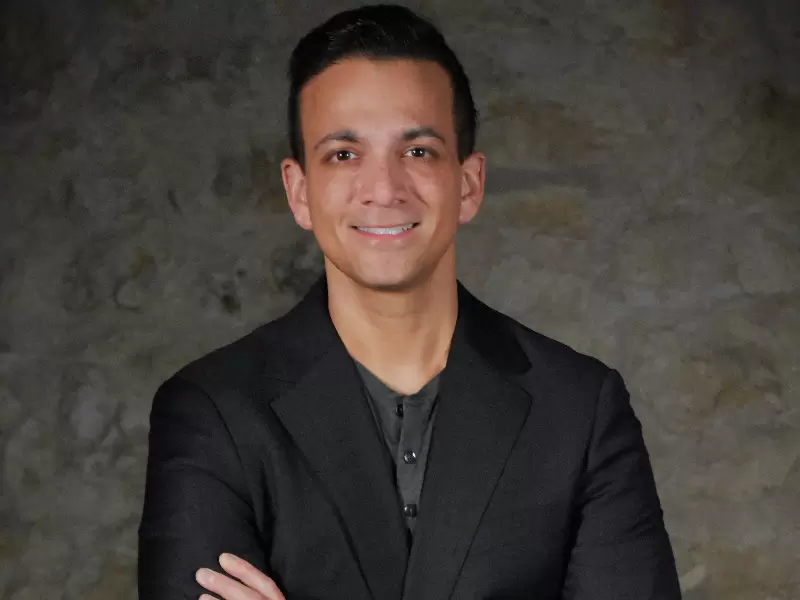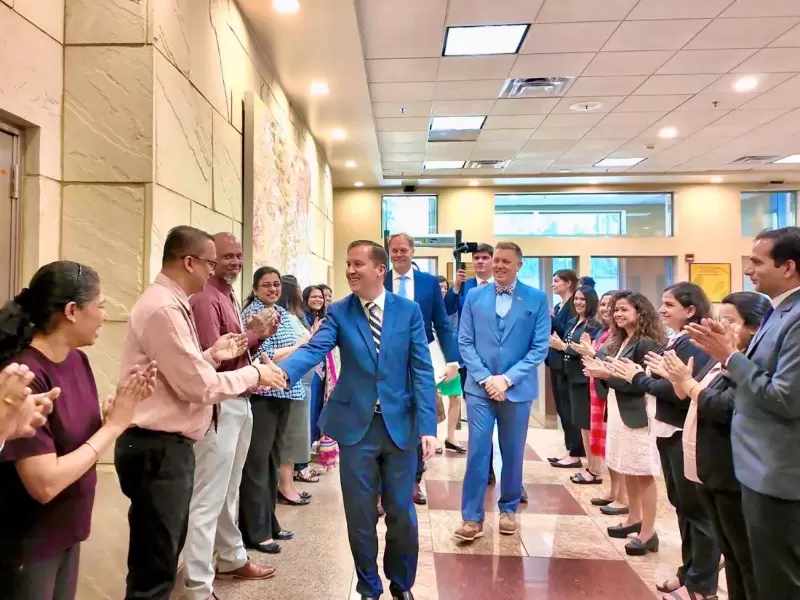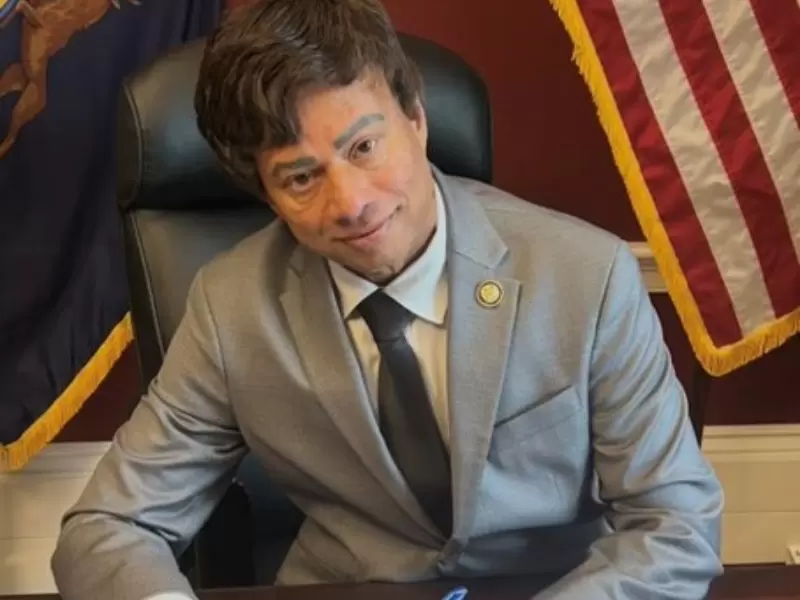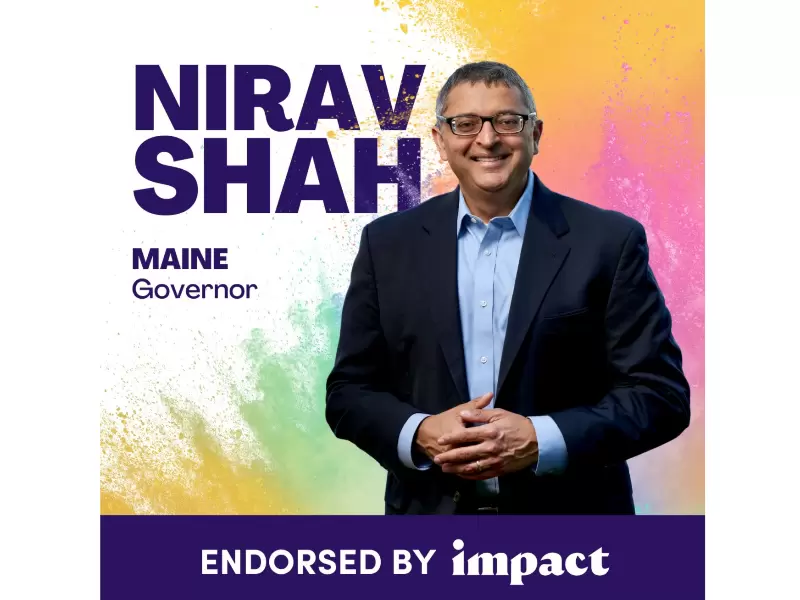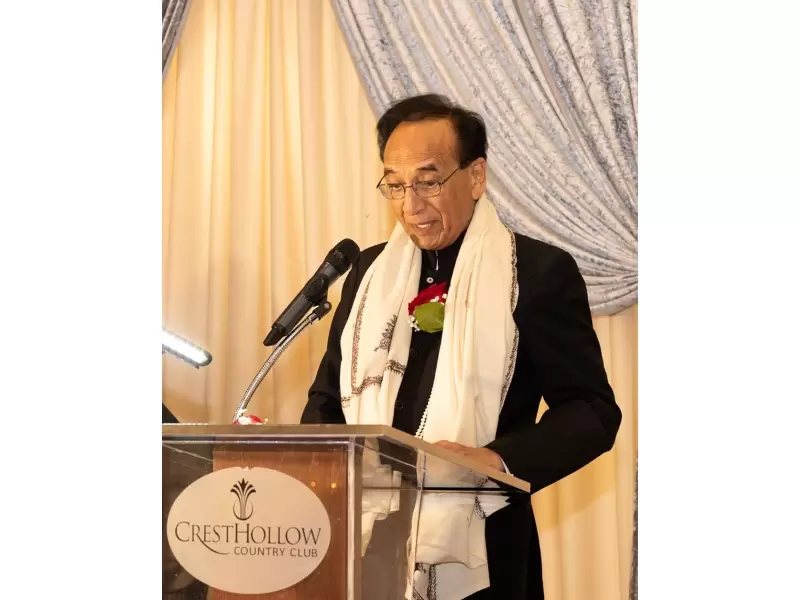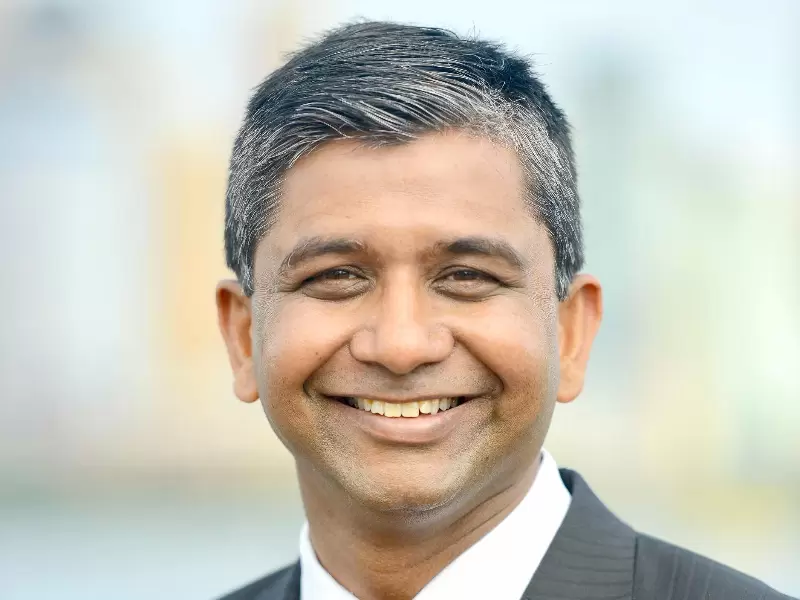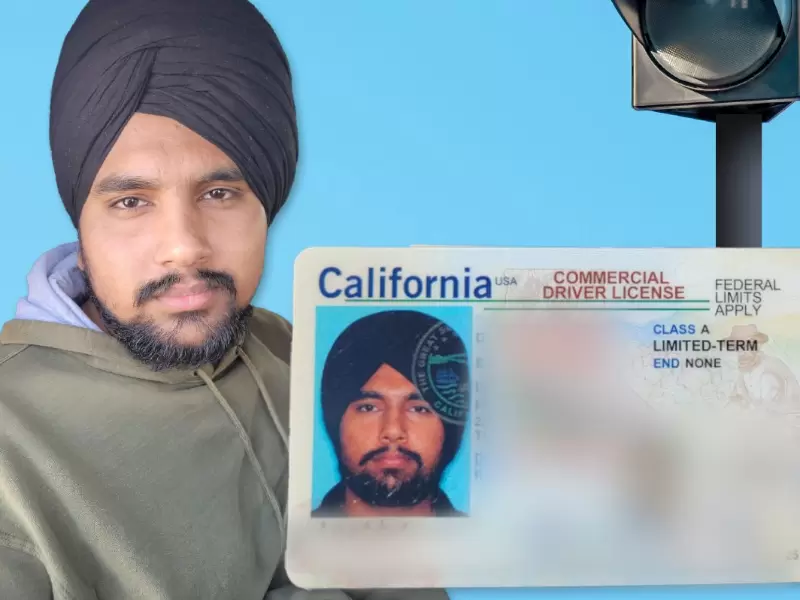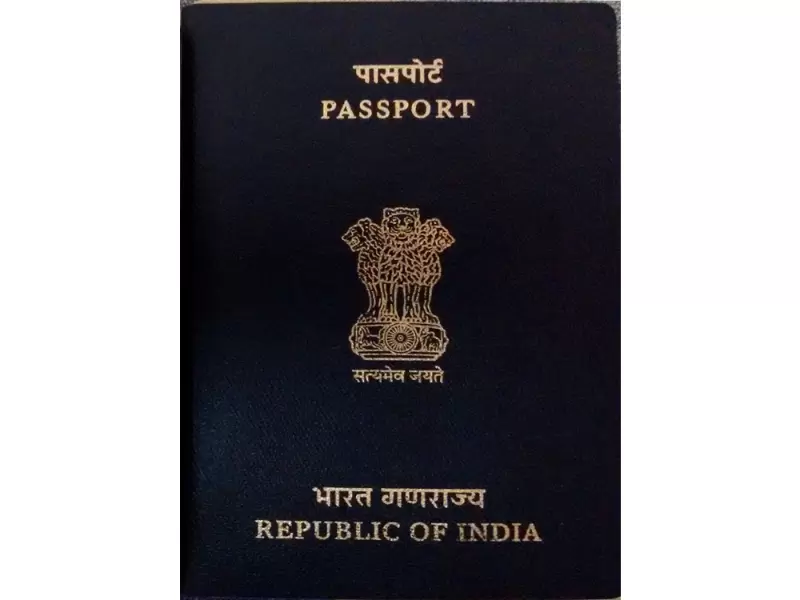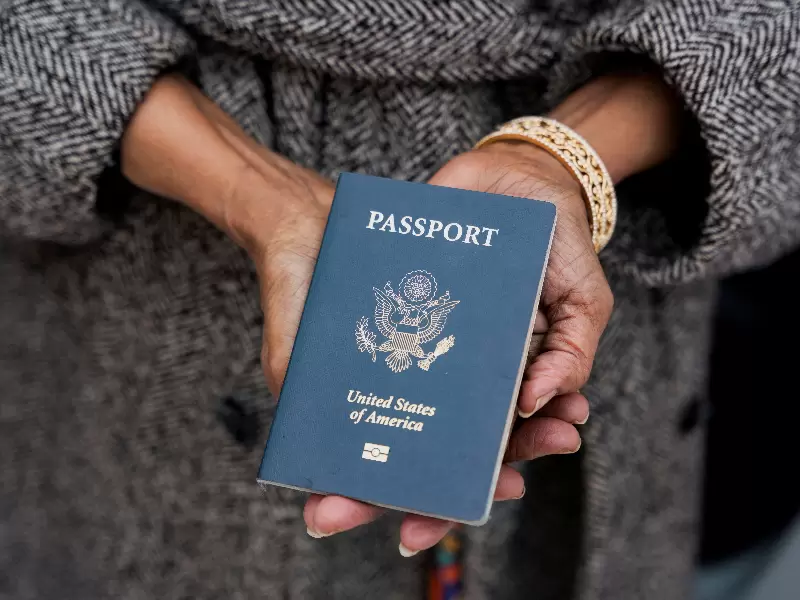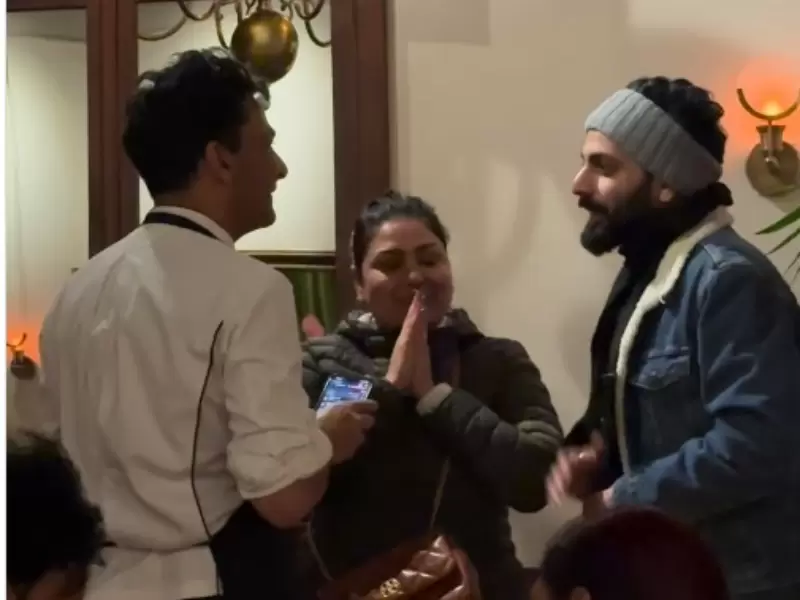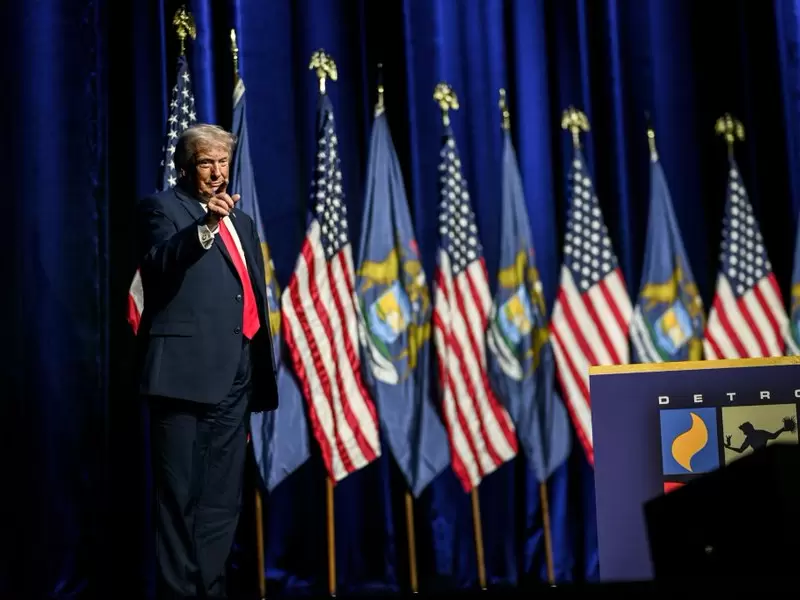ADVERTISEMENT
POP
See MoreCommunity
See MoreSouth Asian Times honors Jatin Shah as Person of the Year 2025
The honorees of The South Asian Times - Person of the Year from previous years spoke and congratulated Dr. Jatin Shah.
-
The remark drew an online response from an entrepreneur who warned of possible political consequences in Texas.
-
The webinar was held virtually and brought together diaspora business leaders from all across the world to reflect on the...
-
The Hindi poetry symposium included videos invited from all across Fiji.
ADVERTISEMENT
Videos
View AllOpinion
See MorePeople
See MoreRitesh Shah named among 50 most influential people in pharmacy
Shah is the founder of the Ritesh Shah Charitable Pharmacy, a nonprofit organization that provides free medications to uninsured and underinsured patients.
-
Popularly known as the “Queen of Lending,” she will discuss resilience, financial literacy and building long-term independence.
-
The honorees of The South Asian Times - Person of the Year from previous years spoke and congratulated Dr. Jatin...
-
The Indian American economist from YSU will oversee a select portfolio of manuscript submissions within his areas of expertise.
ADVERTISEMENT
Entertainment
See More-
‘Shabad – Reet Aur Riwaaz’ centers a close-knit household shaped by faith and tradition.
-
Dhillon took to Instagram to share a series of photographs capturing the trio in high spirits during the muddy escapade.
-
The film’s entry into the Oscars 2026 contention list reflects...
-
Big B is quite active on social media and often...
-
ADVERTISEMENT
Immigration
See More-
Jayapal referred to the decision as ‘cruel’ and must be ‘immediately reversed.’
-
The pause, which will impact applicants from countries including Somalia, Iran, Russia, Afghanistan, Nigeria, Yemen, Thailand and Brazil, will begin...
-
Indian travellers enjoy visa-free access across parts of Southeast Asia,...
-
"We're also going to revoke the citizenship of any naturalized...
Food
See More-
The restaurant aims to bring Italian-American classics to the Metroplex
-
The preservatives included nitrites and nitrates, which are often used to cure ham, bacon and sausages.
-
An Indian origin woman living in Canada shared her experience at the celebrity chef's New York restaurant, Bunglow.
-
Kapur attributed unhealthy outcomes largely to lifestyle choices.
-
India exported about 800 metric tons of foxnuts in 2024–25...
-
Instagram content creator Anushk Sharma shared a heartfelt review of...
-
The new Newark Avenue outlet expands South Indian dining options...
-
Chef came to Dallas on a very short visit over...
SPORTS NEWS
See MoreUSA has been sorted in Group B alongside India U-19,...
As per the report, all four players whose visas have...
Rahul achieved the unique feat by sending Kyle Jamieson’s full...
Chasing a daunting target of 193, the Mumbai Indians showed...
News
See More-
ADVERTISEMENT
Please enter something
- Asian Americans
- Biz
- Books
- Canada
- Community
- Culture
- Dating
- Diplomacy
- Diwali
- Editor picks
- Editorial
- Explainers
- Fashion
- Features
- Food
- Immigration
- India
- India Decides '24
- India Independence Day
- Letters to the Editor
- Life
- Maha Kumbh
- Movies+
- News
- Opinion
- People
- Ram Mandir
- Reviews
- Sports
- Spotlight
- Tech
- Travel n’ Diplomacy
- Trump 2.0
- UK Votes 2024
- US Elections 2024
- USA
- West Coast





